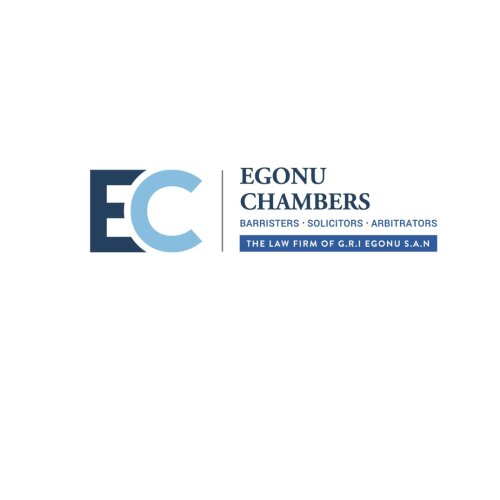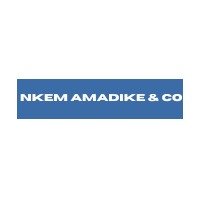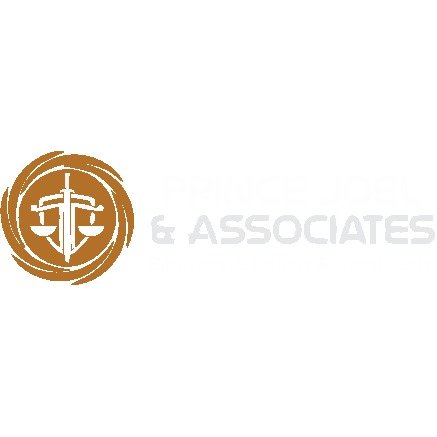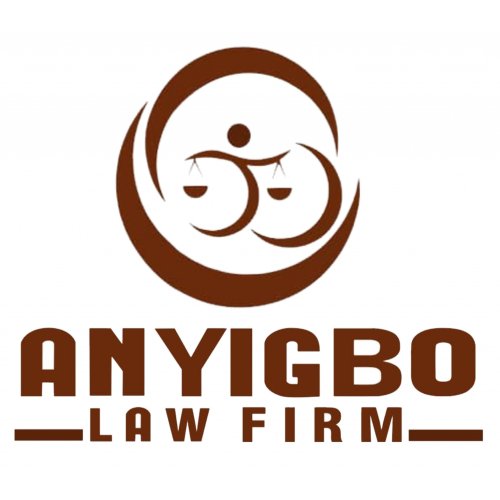Best Conveyancing Lawyers in Onitsha
Share your needs with us, get contacted by law firms.
Free. Takes 2 min.
Free Guide to Hiring a Real Estate Lawyer
List of the best lawyers in Onitsha, Nigeria
About Conveyancing Law in Onitsha, Nigeria
Conveyancing is the legal process involved in transferring ownership of property from one person to another. In Onitsha, Nigeria, conveyancing typically relates to land and real estate transactions. The city is a commercial hub in Anambra State, making property transactions common and significant. Conveyancing law in Onitsha includes drafting documents such as deeds of assignment, obtaining necessary approvals, conducting searches, paying government fees, and ensuring the rightful transfer of title from seller to buyer. The process is governed by Nigerian property laws, customary law, and local regulations specific to Anambra State and Onitsha metropolis.
Why You May Need a Lawyer
There are several reasons you might require legal assistance when dealing with conveyancing in Onitsha:
- To verify the genuine ownership status of a property and avoid fraud
- To review and draft legal documents such as deeds, contracts, and assignment agreements
- To conduct searches at the land registry for encumbrances or liens on the property
- To ensure compliance with local and state property laws
- To handle negotiations and resolve disputes between parties
- To guide you through government procedures, fees, and taxes involved in property transfer
- To represent your interests if complications or litigation arise
Local Laws Overview
Conveyancing in Onitsha is influenced by several legal frameworks. The Land Use Act of 1978 is the primary law governing land ownership in Nigeria, which vests all land in state governments and requires buyers to obtain the Governor's consent for land transactions. In Onitsha, both statutory and customary laws can apply, depending on whether the land is government or family-owned. Key aspects include:
- Obtaining the Governor’s consent for any transfer of interest in land
- Conducting searches at the Anambra State Lands Registry to confirm ownership and investigate possible encumbrances
- Drafting appropriate legal documents such as deeds of assignment or sub-lease agreements
- Payment of government fees, consent fees, stamp duties, and registration costs
- Identification of the specific legal procedure applicable to either statutory or customary title
Frequently Asked Questions
What is conveyancing?
Conveyancing is the legal transfer of property title from one party to another, including all the processes, documentation, and formalities involved in the transaction.
Do I need a lawyer for conveyancing in Onitsha?
Yes, it is strongly recommended to engage a qualified lawyer due to the complexity of verifying land ownership, handling documentation, and complying with legal requirements in Onitsha.
How can I verify a property’s ownership?
Property ownership is verified by conducting a search of the title documents at the Anambra State Lands Registry and by confirming with relevant local authorities or families in cases of customary titles.
What are the key documents required for property transfer?
Common documents include the Deed of Assignment, Certificate of Occupancy (C of O), Governor’s consent, evidence of payment of government fees, and survey plans.
What is the Governor’s consent in land transactions?
The Governor’s consent is a mandatory approval given by the state governor to validate a transfer of property interest according to the Land Use Act.
Can family or communal land be sold in Onitsha?
Yes, but such a sale must comply with customary law, and all rightful family heads or representatives must consent to and execute the transaction to avoid disputes.
How long does the conveyancing process take?
The process can take several weeks to months, depending on the complexity of the transaction, efficiency of searches, document preparation, and obtaining necessary consents.
What risks are associated with not hiring a lawyer?
Risks include falling victim to land scams, buying property with encumbrances, invalid transactions, and potential loss of investment due to procedural errors or incomplete documentation.
What fees and taxes are involved in conveyancing?
These may include legal fees, survey fees, stamp duties, consent fees, registration fees, and capital gains tax where applicable.
Can foreigners own land in Onitsha?
Foreigners may acquire land in Onitsha but are required to follow special procedures and obtain necessary government approvals, as well as comply with restrictions under Nigerian law.
Additional Resources
If you need more information or support regarding conveyancing in Onitsha, you may contact:
- Anambra State Lands Registry
- Anambra State Ministry of Lands, Survey and Urban Development
- Nigerian Bar Association (Onitsha Branch)
- Legal Aid Council of Nigeria (for affordable or free legal services)
- Surveyors’ Council of Nigeria (for land survey matters)
- Local government authorities in Onitsha for information on customary land matters
Next Steps
If you are considering a property transaction in Onitsha or require advice on conveyancing, your next steps should include:
- Consulting a qualified property lawyer experienced with Onitsha land transactions
- Preparing all necessary documents for verification and due diligence
- Conducting searches and confirming the legal status of the property
- Negotiating terms with the assistance of your legal representative
- Ensuring that all fees and taxes are budgeted for and paid promptly
- Registering the transaction properly with the relevant governmental bodies
Taking these proactive steps will help safeguard your investment and ensure that your property rights are fully protected under the law in Onitsha, Nigeria.
Lawzana helps you find the best lawyers and law firms in Onitsha through a curated and pre-screened list of qualified legal professionals. Our platform offers rankings and detailed profiles of attorneys and law firms, allowing you to compare based on practice areas, including Conveyancing, experience, and client feedback.
Each profile includes a description of the firm's areas of practice, client reviews, team members and partners, year of establishment, spoken languages, office locations, contact information, social media presence, and any published articles or resources. Most firms on our platform speak English and are experienced in both local and international legal matters.
Get a quote from top-rated law firms in Onitsha, Nigeria — quickly, securely, and without unnecessary hassle.
Disclaimer:
The information provided on this page is for general informational purposes only and does not constitute legal advice. While we strive to ensure the accuracy and relevance of the content, legal information may change over time, and interpretations of the law can vary. You should always consult with a qualified legal professional for advice specific to your situation.
We disclaim all liability for actions taken or not taken based on the content of this page. If you believe any information is incorrect or outdated, please contact us, and we will review and update it where appropriate.












